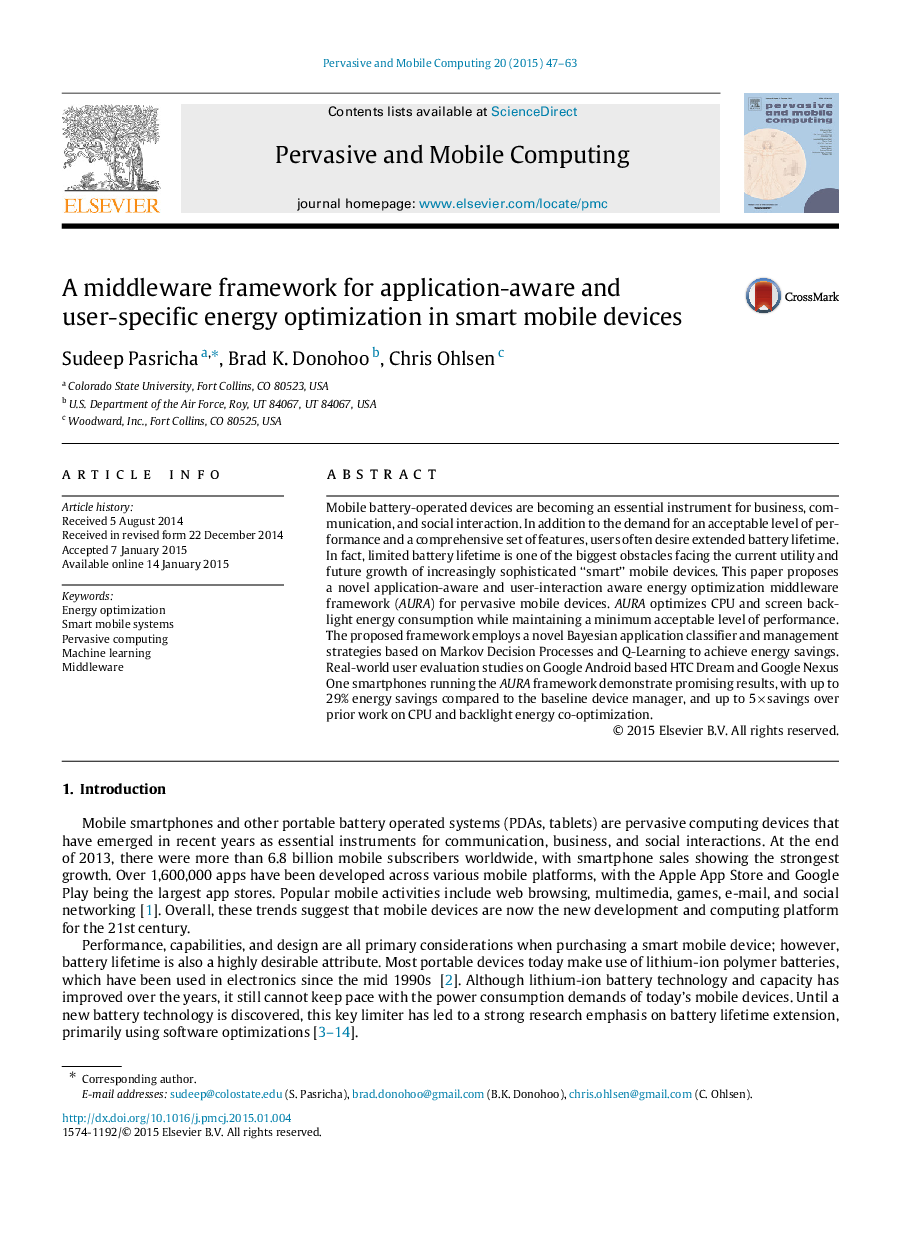| Article ID | Journal | Published Year | Pages | File Type |
|---|---|---|---|---|
| 465954 | Pervasive and Mobile Computing | 2015 | 17 Pages |
Mobile battery-operated devices are becoming an essential instrument for business, communication, and social interaction. In addition to the demand for an acceptable level of performance and a comprehensive set of features, users often desire extended battery lifetime. In fact, limited battery lifetime is one of the biggest obstacles facing the current utility and future growth of increasingly sophisticated “smart” mobile devices. This paper proposes a novel application-aware and user-interaction aware energy optimization middleware framework (AURA) for pervasive mobile devices. AURA optimizes CPU and screen backlight energy consumption while maintaining a minimum acceptable level of performance. The proposed framework employs a novel Bayesian application classifier and management strategies based on Markov Decision Processes and Q-Learning to achieve energy savings. Real-world user evaluation studies on Google Android based HTC Dream and Google Nexus One smartphones running the AURA framework demonstrate promising results, with up to 29% energy savings compared to the baseline device manager, and up to 5×savings over prior work on CPU and backlight energy co-optimization.
